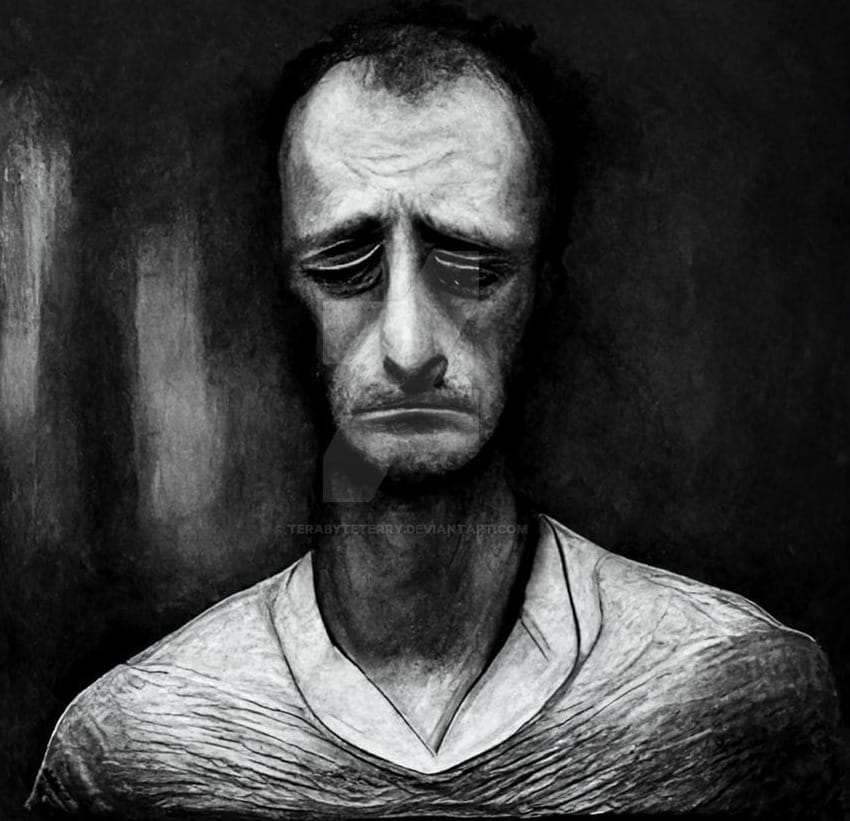How To Talk To An Economic Doomer

One strategy for convincing someone that the economy is actually good is to get directly in front of their face and spout off economic data and measurements until spittle is raining down on the skeptic.
If you go on long enough – if you cite enough valid statistics that demonstrate a healthy economy – the skeptic’s skepticism will melt away, and they will see with new eyes what you see: An economy that is fine, where unemployment is lower than low and wages are rising and labor unions are racking up important victories like it’s 1957.
This, of course, has become a favorite pastime for political nerds who don’t actually understand or necessarily like politics – folks who believe with all their might that Joe Biden’s economy is quite good and with enough good-faith arguing, even the most committed Biden hater will come around and understand that it is indeed Morning in America. You’re not going to convince anyone that their lives are actually fine, that their finances and economic standing are as good as they can be – or, at least, way better than they usually are under a Republican president.
If a person believes the economy is bad, the economy is bad. That’s it. There’s no use in pushing back on that with good faith discourse, since good faith discourse is not only useless, but a political liability.
Subscribe to Bad Faith Times for free or support BFT with $5 a month.
If a person thinks eggs are too expensive, there is no swaying them. It doesn’t matter that someone’s disdain for egg prices might be a remnant of the 2022 egg price explosion and all the inflationary shit that went along with it, with corporations jacking up prices just for the fuck of it. It doesn’t matter that eggs are cheaper in 2023 than they were in the months after Biden took office. If someone says the price of eggs is too damn high, that is their reality. We all have our own in the 21st century.
Much of our moment’s economic skepticism is thanks to crushing doomerism brought on by excessive social media use – people logged on to their various devices 12 or 14 or 16 hours a day, consuming bad (horrible) news about American children starving and whole American cities without drinking water and skyrocketing homelessness in ultra-rich, culturally liberal cities and states, and they say – reasonably – that whoever is in charge of this shit has done a really bad fucking job. And right now, that person is Joe Biden. And so that person in charge pays a political price, and we turn to the other guy and say, well, he can’t do worse than this, can he? And on and on the cycle goes: Americans desperately looking for a president who can lower the price of eggs and gas and rent and childcare (I could be overestimating the percentage of the electorate that might qualify as doomers, as I’m not sure there are millions of Americans who spend all day every day online hoovering up the pain and torment and agony of every living person).
Blaming the dude in charge is why we now have a slice of the U.S. electorate who will vote for either Kamala Harris or Donald Trump, but not Biden. It’s why we have folks who will support a dead-end third-party candidate like the bad faith-dealing Robert Kennedy Jr., and why people in 2016 wasted their precious votes on idiot alternative presidential candidates like Gary Johnson and Jill Stein. This phenomenon – blaming the guy in the White House – is probably how we got Biden in 2020.
Instead of breaking out the old economic spreadsheet and zipping through a dozen economic indicators that show manufacturing jobs booming like almost never before and government investment (spending, in conservative parlance) creating a strong labor market by giving workers some semblance of leverage against their employers, talk to these folks about the nature of capitalism, about what it means to live in a system where everything is for-profit and all industry is controlled by private (extraordinarily wealthy) interests.
This is the only way it can be in a capitalist economy, you might tell them. There is no real economic security for working families because there is no economic floor under capitalism (no, means-tested government programs don't count as a floor because they intentionally do not provide a dignified life for human beings). We’re all balancing on a tightrope over a sea of molten lava, sweating through our shirts, tired and insane with anxiety, hoping and praying to any god who will listen that nothing and no one nudges us off. Such a precarious existence ensures a person will work and work and work for not much money if it means they can live a halfway decent life and provide for those they love. The alternative is the lava below.
Such precariousness – even during stable economic times – ensures the worker will keep producing and helping to make the line go up and up and up, because the line can never not go up or everyone suffers forevermore. That is capitalism, brutal and unfeeling and reliant on an arrangement in which you have no time or energy to push back on your own exploitation. Exhaustion is a fundamental piece of the capitalist equation. And it seems the doomers among us are giving into that exhaustion in increasing numbers. You can hardly blame them.
Follow Denny Carter on BlueSky at @cdcarter13.bsky.social and on X at @CDCarter13.
Comments ()